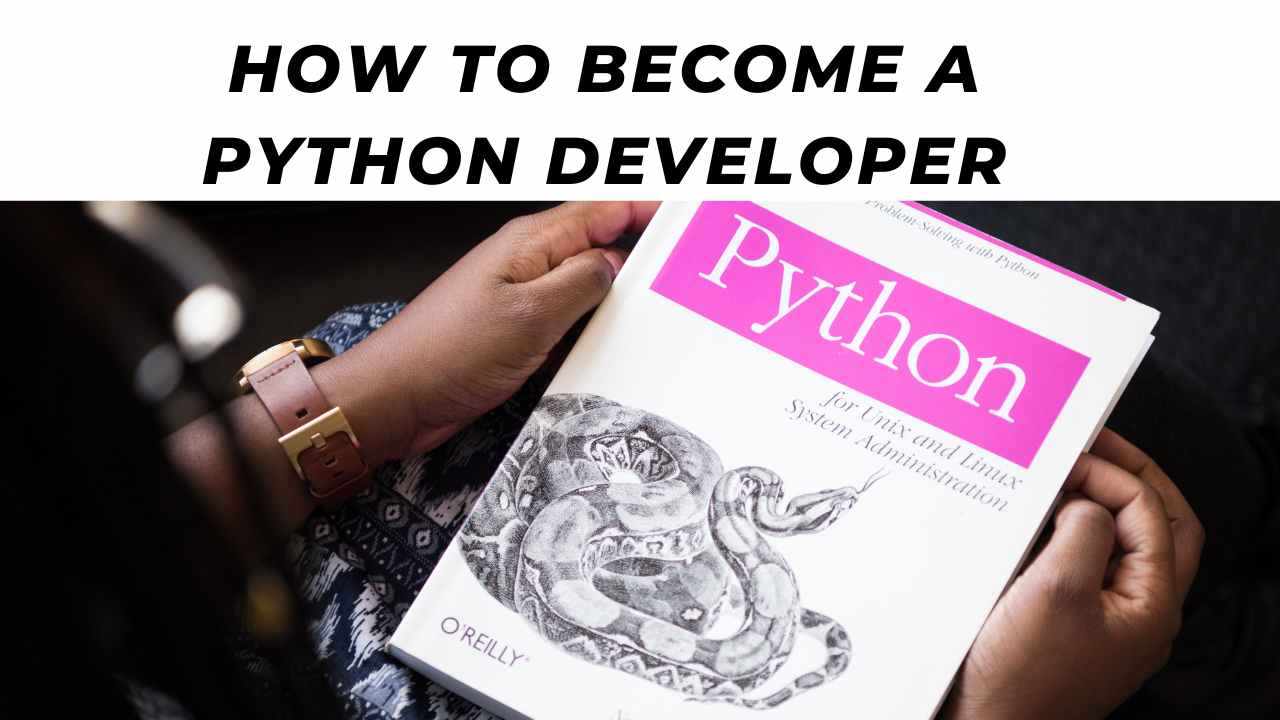In today’s tech-driven world, Python has emerged as one of the most sought-after programming languages, with its versatility, simplicity, and extensive library support making it an ideal choice for developers across various domains. If you aspire to become a Python developer in 2020 and beyond, you’re on the right track towards an exciting and rewarding career path. In this comprehensive guide, we’ll explore the steps you need to take to kickstart your journey as a Python developer in 2020.
1. Understand the Fundamentals of Python: Before diving into the intricacies of Python development, it’s essential to have a strong grasp of the language’s fundamentals. Start by learning Python syntax, data types, control structures, functions, and object-oriented programming concepts. There are numerous online resources, tutorials, and books available to help you master these fundamentals.
2. Choose Your Specialization: Python offers versatility across a wide range of domains, including web development, data science, machine learning, artificial intelligence, automation, and more. Determine your area of interest and choose a specialization that aligns with your career goals. Whether you’re passionate about building web applications, analyzing data, or developing machine learning models, Python has something for everyone.
3. Build a Strong Foundation in Data Structures and Algorithms: Data structures and algorithms form the backbone of computer science and software development. Invest time in understanding various data structures such as lists, dictionaries, sets, and tuples, as well as common algorithms like sorting, searching, and graph traversal. A solid understanding of data structures and algorithms will enhance your problem-solving skills and make you a more efficient Python developer.
4. Master Python Frameworks and Libraries: Python’s extensive ecosystem of frameworks and libraries empowers developers to build robust and scalable applications with ease. Depending on your specialization, familiarize yourself with popular Python frameworks such as Django and Flask for web development, NumPy and Pandas for data manipulation and analysis, TensorFlow and PyTorch for machine learning, and OpenCV for computer vision. Stay updated with the latest advancements and best practices within your chosen domain.
5. Practice Real-World Projects: Theory alone is not enough to become proficient in Python development. Take on real-world projects to apply your knowledge and hone your skills. Start with simple projects and gradually tackle more complex challenges as you gain confidence. Building a portfolio of projects will not only showcase your abilities to potential employers but also demonstrate your passion for Python development.
6. Collaborate and Contribute to Open Source: Engage with the Python community by participating in online forums, attending meetups, and contributing to open-source projects. Collaborating with other developers and contributing to open-source projects not only expands your knowledge but also exposes you to real-world development practices and industry standards. It’s also an excellent way to network with professionals in the field and establish your presence within the Python community.
7. Stay Updated and Continuously Learn: The field of technology is constantly evolving, with new tools, frameworks, and best practices emerging regularly. Stay updated with the latest trends, attend workshops, enroll in online courses, and read relevant blogs and publications to stay ahead of the curve. Continuous learning is key to thriving as a Python developer in 2020 and beyond.
8. Build a Professional Network: Networking plays a crucial role in career advancement. Attend industry events, conferences, and meetups to connect with fellow Python developers, recruiters, and industry experts. Building a strong professional network can open doors to job opportunities, mentorship, and collaborations, ultimately accelerating your growth as a Python developer.
9. Prepare for Interviews and Job Search: As you gain proficiency in Python development, prepare yourself for job interviews by practicing coding challenges, solving algorithmic problems, and refining your communication skills. Tailor your resume and online profiles to highlight your Python skills and relevant experience. Leverage online platforms, job boards, and professional networks to explore job opportunities and land your dream role as a Python developer.
10. Embrace Lifelong Learning and Growth: Becoming a Python developer is not the end of the journey; it’s just the beginning. Embrace lifelong learning, adapt to new technologies, and continuously seek opportunities for growth and development. Whether it’s mastering new frameworks, exploring different domains, or pursuing advanced certifications, never stop learning and evolving as a Python developer.
In conclusion, becoming a Python developer in 2020 requires dedication, passion, and a commitment to lifelong learning. By mastering the fundamentals, choosing the right specialization, building practical skills, and staying updated with industry trends, you can embark on a rewarding career journey as a Python developer. So, roll up your sleeves, dive into the world of Python development, and unleash your potential in this dynamic and ever-evolving field
 SINCE 2010
SINCE 2010 